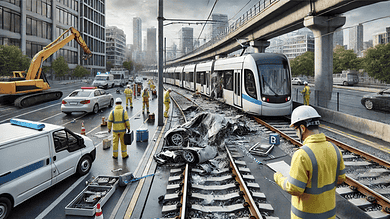Light Rail Accident Liability Expert
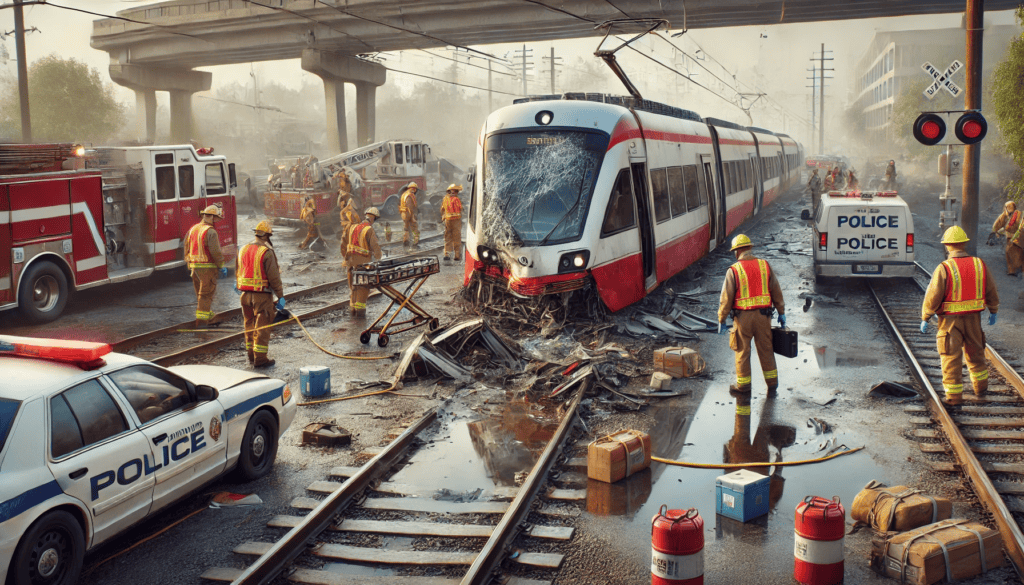
Legal Aspects of Light Rail Accidents: A Comprehensive Guide
Light rail systems play a crucial role in modern urban transportation, offering a sustainable and efficient mode of transit. However, the increasing adoption of light rail systems has also introduced numerous legal challenges.
Accidents, safety breaches, and operational disputes often lead to complex legal proceedings.
Light Rail Accident Liability Expert testimony becomes critical in these cases, helping courts navigate technical intricacies and ensuring fair outcomes. This comprehensive guide delves into the legal aspects of light rail accidents, highlighting the roles of various experts and examining key legal cases and their outcomes.
Overview of Legal Considerations
Legal considerations in light rail accidents encompass multiple facets, including liability, regulatory compliance, and insurance claims.
Liability Issues
Determining fault in light rail accidents is a critical legal consideration. Liability can fall on various parties, including the rail operator, the manufacturer of rail vehicles, or even the local government. A light rail accident liability expert plays a pivotal role in assessing the circumstances of the accident, analyzing evidence, and providing testimony to establish who is at fault. These experts evaluate the operators’ actions, the condition of the rail vehicles, and the maintenance practices to determine liability.
Regulatory Compliance
Light rail systems are governed by stringent safety regulations and standards designed to protect passengers, operators, and the general public. Non-compliance with these regulations can lead to severe legal consequences. Regulatory compliance involves adhering to federal, state, and local safety standards, conducting regular inspections, and implementing safety protocols. Legal ramifications for non-compliance include fines, sanctions, and increased liability in the event of an accident. A rail transport litigation expert can help navigate these complex regulatory landscapes, ensuring that all legal requirements are met and providing defense in cases of alleged non-compliance.
Insurance and Compensation
Insurance policies are vital in covering the damages and injuries resulting from light rail accidents. These policies typically cover property damage, medical expenses, and liability claims. Legal procedures for claiming compensation involve proving the extent of the damages and the parties’ liability. Expert witnesses, such as light rail accident liability experts and public transit injury consultants, provide crucial evidence to support these claims, ensuring that victims receive fair compensation.
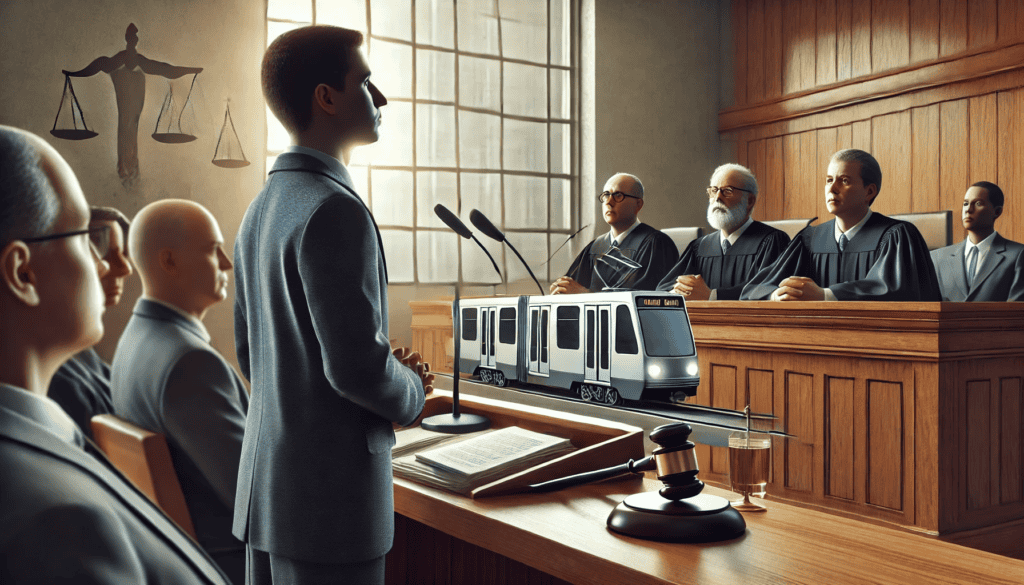
Role of Expert Witnesses in Legal Cases
Expert witnesses are indispensable in light rail accident litigation. Their specialized knowledge and objective analysis help bridge the gap between technical details and legal arguments.
Light Rail Accident Liability Expert
These experts specialize in assessing and testifying about liability issues in light rail accidents. Their role includes examining the accident scene, analyzing operational records, and evaluating maintenance practices. Their testimony helps establish the fault and can be critical in determining the case’s outcome.
Rail Transport Litigation Expert
Rail transport litigation experts provide insights into the complex regulations governing light rail systems. They assist in understanding compliance issues, safety standards, and operational protocols. Their expertise is vital in regulatory compliance cases, where their testimony can clarify whether safety standards were met or violated.
Light Rail Incident Investigation
Conducting a thorough incident investigation is crucial for uncovering the root causes of light rail accidents. Expert witnesses in this field use various tools and techniques, such as accident reconstruction, forensic analysis, and data review, to gather evidence. Their findings provide a factual basis for legal arguments and help ensure that all relevant aspects of the incident are considered.
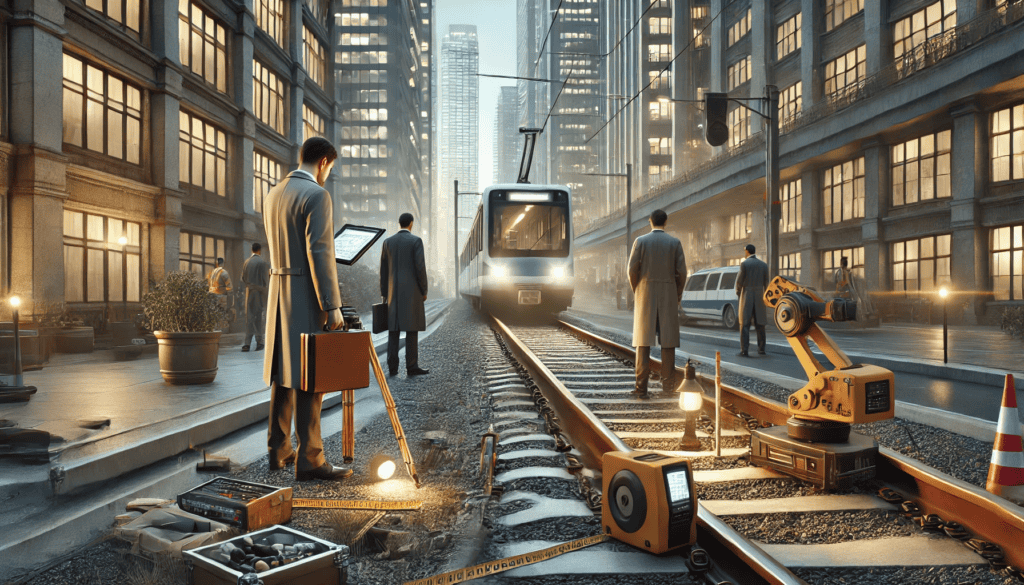
Key Legal Cases and Their Outcomes
Examining notable legal cases involving light rail accidents provides valuable insights into the legal principles and precedents that shape the industry.
These case studies draw on elements that are seen in real cases, but they remain entirely speculative and are used for educational and illustrative purposes.
Case Study 1: Liability Determination
In a significant case involving a light rail collision, the expert testimony of a light rail accident liability expert was instrumental. The expert conducted a comprehensive accident analysis, including vehicle inspections and operator interviews. Their testimony revealed critical safety lapses, leading to a favorable outcome for the plaintiffs.
Case Study 2: Regulatory Compliance
In another case, a light rail operator faced allegations of non-compliance with federal safety standards. A rail transport litigation expert testified to the operator’s adherence to safety protocols and maintenance schedules. The expert’s detailed analysis demonstrated that the operator had met all regulatory requirements, resulting in the dismissal of the allegations.
Case Study 3: Compensation Claims
In a case involving a derailment, passengers sought compensation for injuries sustained. A public transit injury expert conducted an extensive investigation, examining medical records, vehicle maintenance logs, and accident reports. Their testimony provided the necessary evidence to secure substantial compensation for the victims.
Case Study 4: Design and Maintenance Disputes
Another notable case involved a dispute over the design and maintenance of a light rail system. A light rail engineering expert was brought in to evaluate the design specifications and maintenance records. The expert’s analysis showed that the design flaws contributed to frequent breakdowns and accidents, leading to a settlement favoring the complainant.
Case Study 5: Environmental Compliance
A light rail project faced legal challenges due to environmental compliance issues. An environmental regulation expert provided testimony on the project’s adherence to environmental laws and the impact of construction on local ecosystems. The expert’s thorough evaluation helped the court understand the project’s environmental footprint and ruled in favor of the project’s continuation with additional safeguards.
The Process of Selecting Expert Witnesses
Selecting the right expert witness involves several critical steps:
Criteria for Selection
- Relevant expertise and experience in rail operations or safety being litigated.
- Strong professional reputation and a history of providing reliable expert testimony.
Vetting and Hiring
- Thoroughly vetting potential experts by reviewing their qualifications, previous testimony, and professional conduct.
- Conducting interviews to assess their communication skills and ability to articulate complex concepts.
Matching Qualifications to Case Specifics
- Ensuring that the expert’s qualifications align with the technical aspects of the case.
- Select an expert whose background and experience directly relate to the litigated issues.
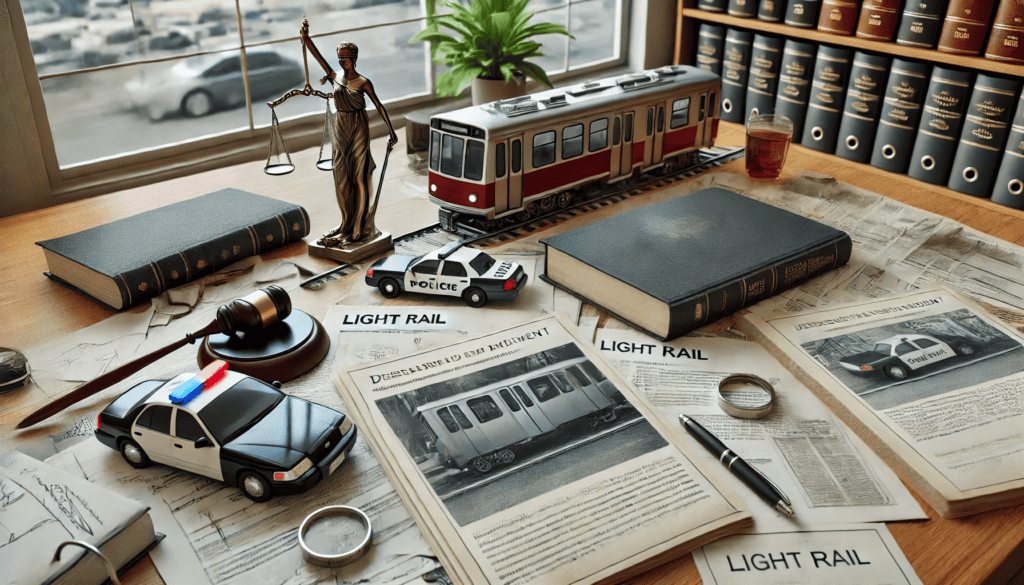
Challenges Faced by Expert Witnesses
Expert witnesses often encounter challenges when providing testimony in rail litigation:
Technical Complexity
The technical nature of rail systems and operations can make it difficult to explain concepts in layman’s terms. Overcoming this challenge requires simplifying complex information without losing accuracy.
Cross-Examination
Expert witnesses must defend their analysis and conclusions against rigorous questioning during cross-examination. Maintaining composure and credibility under pressure is crucial.
Maintaining Impartiality
Experts must avoid the appearance of bias and ensure their testimony remains objective and fact-based. This involves refraining from advocacy and focusing solely on providing accurate information.
Staying Updated with Regulations
Rail transport regulations are continuously evolving. Experts must stay updated with the latest regulations and safety standards to ensure their testimony is current and relevant.
Balancing Multiple Cases
Expert witnesses often handle multiple cases simultaneously. Balancing these responsibilities while maintaining the quality and thoroughness of their analysis can be challenging.
Light Rail Accident Liability Expert Testimony
The legal aspects of light rail accidents are complex and multifaceted, requiring a thorough understanding of liability, regulatory compliance, and the role of expert witnesses. Expert testimony is crucial in navigating these challenges, providing objective analysis and insights that can significantly influence legal outcomes.
As light rail systems continue to evolve and expand, the importance of engaging knowledgeable and experienced experts cannot be overstated. Ensuring compliance with safety standards, addressing liability issues, and securing fair compensation for victims are essential components of a robust legal framework for light rail systems.
References and Further Reading
- Federal Transit Administration (FTA) – Safety and Oversight
- National Transportation Safety Board (NTSB) – Rail Accident Reports
- American Public Transportation Association (APTA) – Safety and Security
- Journal of Transportation Law, Logistics and Policy
- Case Studies in Public Transportation Safety – Transportation Research Board

